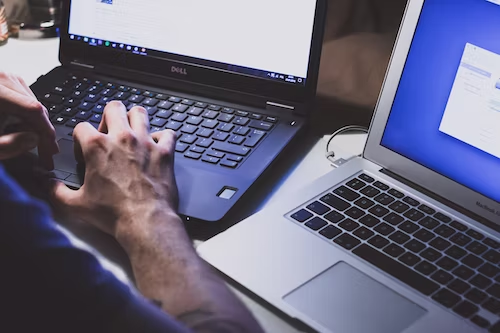Access to the internet is convenient in today’s interconnected society since public networks are available almost anywhere. We must be aware of the fact, however, that these open networks can also pose serious threats to our data privacy and safety. Why do you need a VPN at coworking spaces too? Sensitive information such as login credentials, banking information, and personal data can be easily intercepted by cybercriminals when being transmitted over public networks and at coworking spaces. In light of the prevalence of cyber attacks on public networks, it is crucial to take the necessary precautions to protect our personal information when online. In this post, we’ll go over a few measures you may take to protect your data while using public Wi-Fi.
Don’t do Anything Private on a Public Wi-Fi network
Avoiding doing things like online banking, shopping, or accessing confidential data when utilizing a public network is a simple method to increase your security. You should switch to using your mobile data plan or a private, encrypted Wi-Fi network, like a mobile hotspot, for these purposes.

Put a Virtual Private Network to Use
Virtual Private Networks (VPNs) make it more difficult for hackers to intercept your data by creating an encrypted tunnel between your device and the internet. A virtual private network (VPN) allows for encrypted data transmission and privacy protection while online. There are a wide variety of VPN offerings, so you may pick the one that works best for you.
Initiate Two-Factor Authentication
Two-factor authentication (2FA) adds another degree of protection by requiring a secondary form of identity, like a code delivered to your phone or email, in addition to your primary form of identification before granting access to your account. Two-factor authentication (2FA) increases your account’s security by making it more difficult for hackers to gain access to your account.
Update Your Programs Regularly
If you want to protect yourself from cyberattacks, you need to make sure your software is always up-to-date. Updates to commonly used software typically include security patches to close any newly discovered security holes. That’s why it’s crucial to always use the most secure versions of your software, including your operating system, web browser, and everything else you use.

Set up a Firewall
The term “Firewall” refers to a type of security software that can monitor and restrict network traffic. A Firewall can be used to shield your system from intruders and harmful data transfers. The firewall protection offered by the operating system is usually sufficient, but further protection can be obtained by installing additional firewall software.
Take password security seriously
Passwords that are difficult to guess are another important measure to take in the fight against cybercrime. Avoid using personal information such as your name, date of birth, or phone number, and instead choose a password that includes a mix of capital and lowercase letters, digits, and symbols. Also, you should never use the same password for multiple accounts.
In conclusion, while public networks do provide easy access to the internet, they also present serious security issues. If you follow the advice given above, you can avoid being a victim of cybercrime and protect your private data while using a shared Internet connection. Never let your guard down and always be on the lookout for any threats to your internet security.







